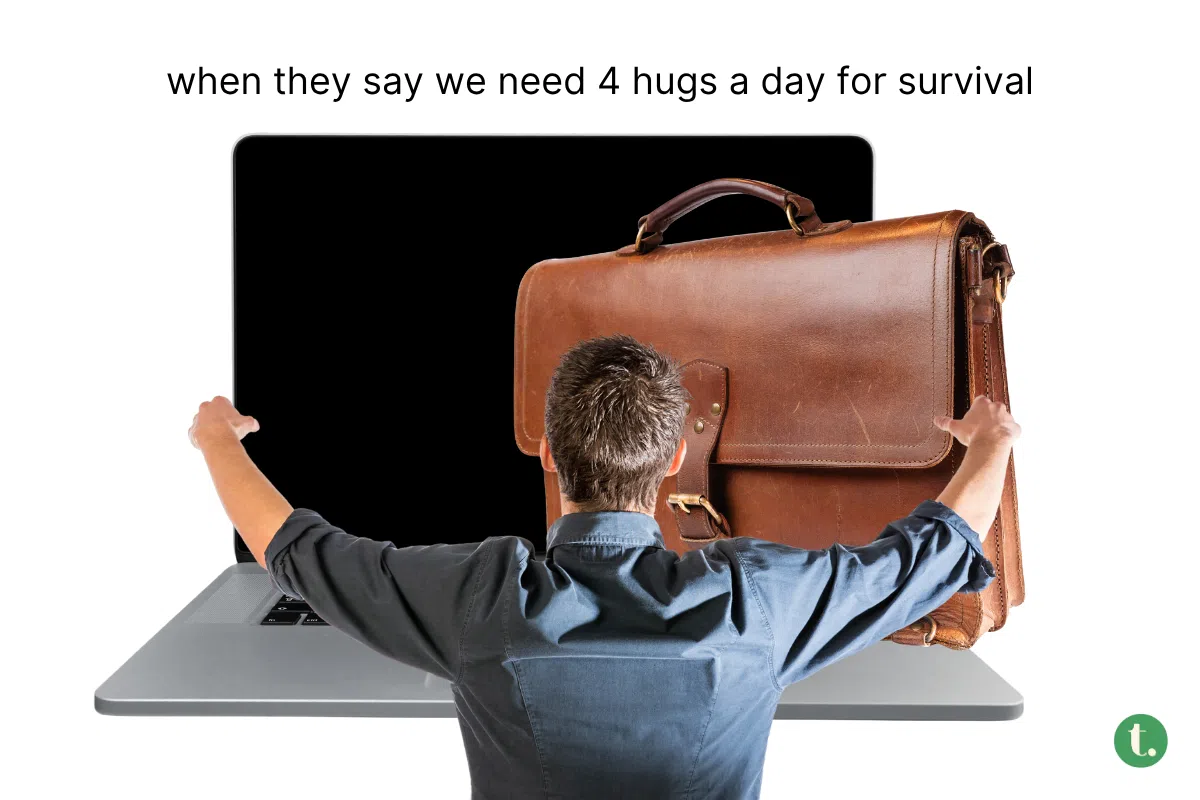Why are more young workers ‘job hugging’? (Hint: it’s not company loyalty)

Straight to your inbox. Money, career and life hacks to help young adults stay ahead.
[SINGAPORE] A friend once swore to me she’d leave her job “soon”. A year later, she’s still there – despite saying it no longer fulfils her. So I asked her, why stay?
She feels that no other company would take her right now. And she’d rather avoid putting herself through the emotional turmoil of job hunting again.
That about sums up what many workers are going through today – a phenomenon now dubbed “job hugging”. While mid-career professionals may be the biggest culprits according to this BT feature, younger professionals are just as prone.
Employees stay in roles longer than they want to, because amid a murky job market, leaving feels riskier than staying.
In fact, the number of employed residents who switched jobs last year is the lowest in six years, according to statistics by the Ministry of Manpower (MOM).
But this decline could be a result of more workers staying in their current jobs as hiring slowed after an initial surge following the Covid-19 crisis, the report stated.
Navigate Asia in
a new global order
Get the insights delivered to your inbox.
Even for those who have attempted to move elsewhere, they aren’t confident about letting go of their positions right now.
Francesca Lim (not her real name), 25, has been working in the healthcare industry for about two and a half years, but says she feels stuck in her current job.
“I have the urge to quit without a backup plan but my job search has been quite stagnant. Hence why I’m staying (in my current role) while I hunt for other opportunities,” she adds.
Although lower resignation rates may seem positive, these hugging patterns reflect deeper concerns over workers’ anxieties about job security and career prospects.

🫂 Reasons for the tighter embrace In the third quarter of 2025, total employment in Singapore rose by 24,800, advance estimates from MOM showed.
This was up from 10,400 in the previous quarter and higher than the 22,300 recorded in the same quarter a year ago.
Song Seng Wun, an independent economist, says the job market is still in “cautiously optimistic” territory. Although the numbers signal that there is still hiring demand, global economic uncertainties continue to loom, he adds.
US President Donald Trump’s “flip-flop” tariffs and their implications on trade-oriented economies like Singapore have made everyone more cautious this year, he adds.
And perhaps, starting careers in such uncertain times have shifted what young workers value today.
A new study by the Singapore University of Social Sciences (SUSS) found that job security and financial gain are now the top employment priorities of those aged 18 to 35, overtaking flexible work.
“My job does pay the bills and there are things I still enjoy doing at where I am. So, I am staying for stability,” my peer from earlier says.
And who can blame them? With a rising youth unemployment rate and a tough job market for fresh grads, it’s understandable why young professionals would rather grip tightly to the positions they’ve got than risk falling into uncertainty (again).

😵💫 Emotional toll
But job hugging isn’t all that bad. It can be a strategic pause while you figure out your next move.
Typically, those who job hop earn higher salaries of 10 to 25 per cent more than those who stay.
But data from the US suggest that this may no longer be the case, with wage growth for job stayers surpassing that of job switchers. At least in the US, maybe it does pay to stay.
That said, getting too comfortable can lead to career stagnation and job-hugging out of fear or anxiety of what’s out there (or lack thereof) can create greater emotional distress.
Lately, I’ve noticed a phrase creep into conversations with friends who feel like they’ve settled for a job, but have no other option than to stay on: “I am grateful to have a job but…”
After a tough job hunt, it’s normal to feel lucky just to be employed. Even when the job starts wearing us down, we often keep quiet – because how dare we complain when others are struggling to even get hired?
The reality is, conflicting emotions can co-exist. We can be grateful for a job, yet still acknowledge it’s not where we want to be and hope for better.
📜 Flipping the script
With uncertainties still lingering, it’s easy to feel like we’re tied down to our current roles.
However, if you are dissatisfied because you feel you’ve settled for a position that’s not your “dream job”, it is worth taking steps to see how you can make the most of where you are first.
Instead of seeing your current job as a dead end, try:
- Using it as a launchpad to build connections
- Talking to your manager on ways to expand your responsibilities
- Making use of courses or resources your company offers to upskill or reskill
- Seeking out internal transfer opportunities to move to another role
- Picking up side projects in your personal time to discover interests that could turn into future professional opportunities

TL;DR
- More young professionals are staying put in their jobs – a trend known as job hugging
- Global economic uncertainties and a murky job market have made job security a top priority
- But staying too long may hurt career progression and take an emotional toll
- Still, there are ways to flip the script and make the most out of our current jobs
Decoding Asia newsletter: your guide to navigating Asia in a new global order. Sign up here to get Decoding Asia newsletter. Delivered to your inbox. Free.
Copyright SPH Media. All rights reserved.


